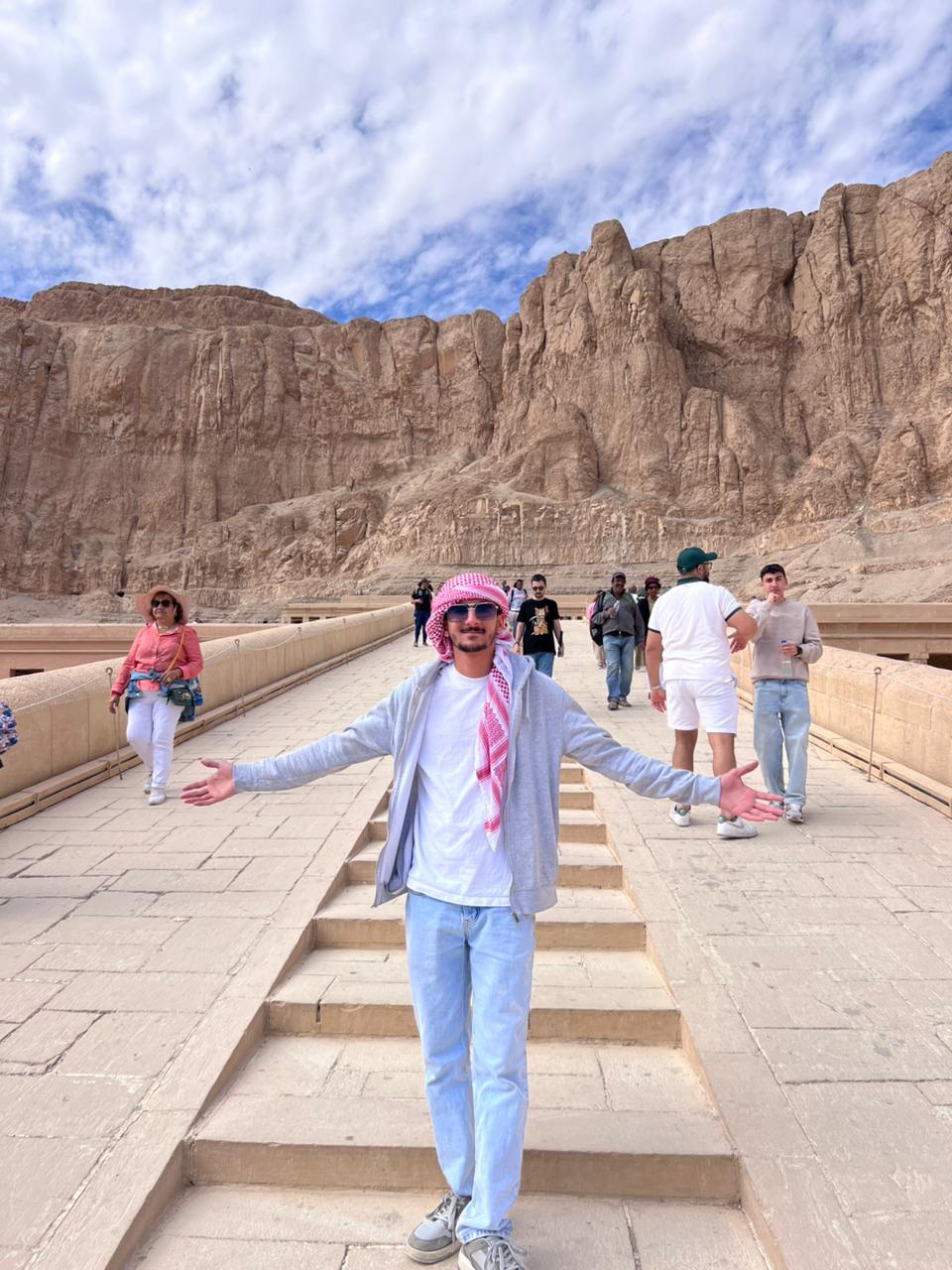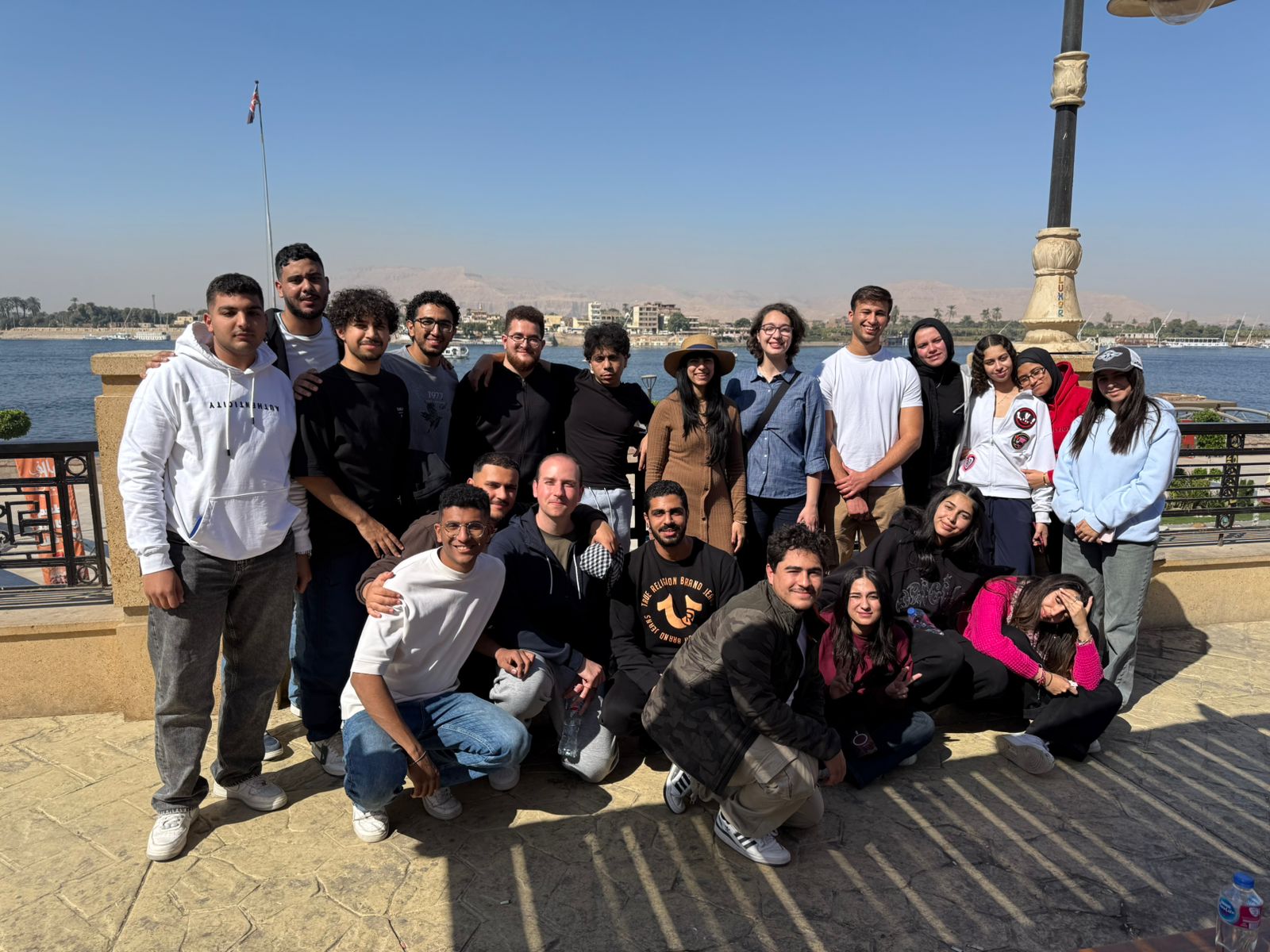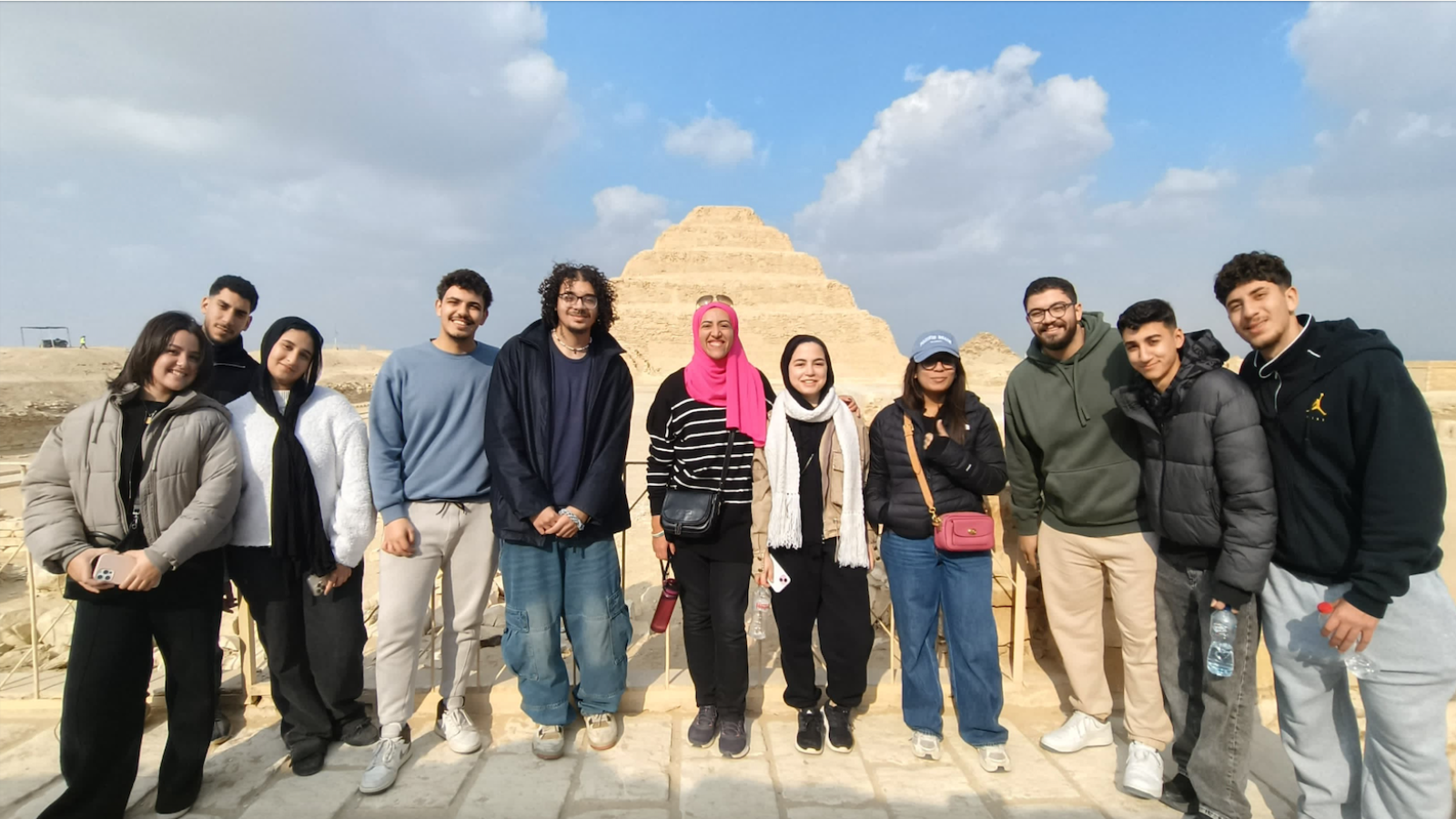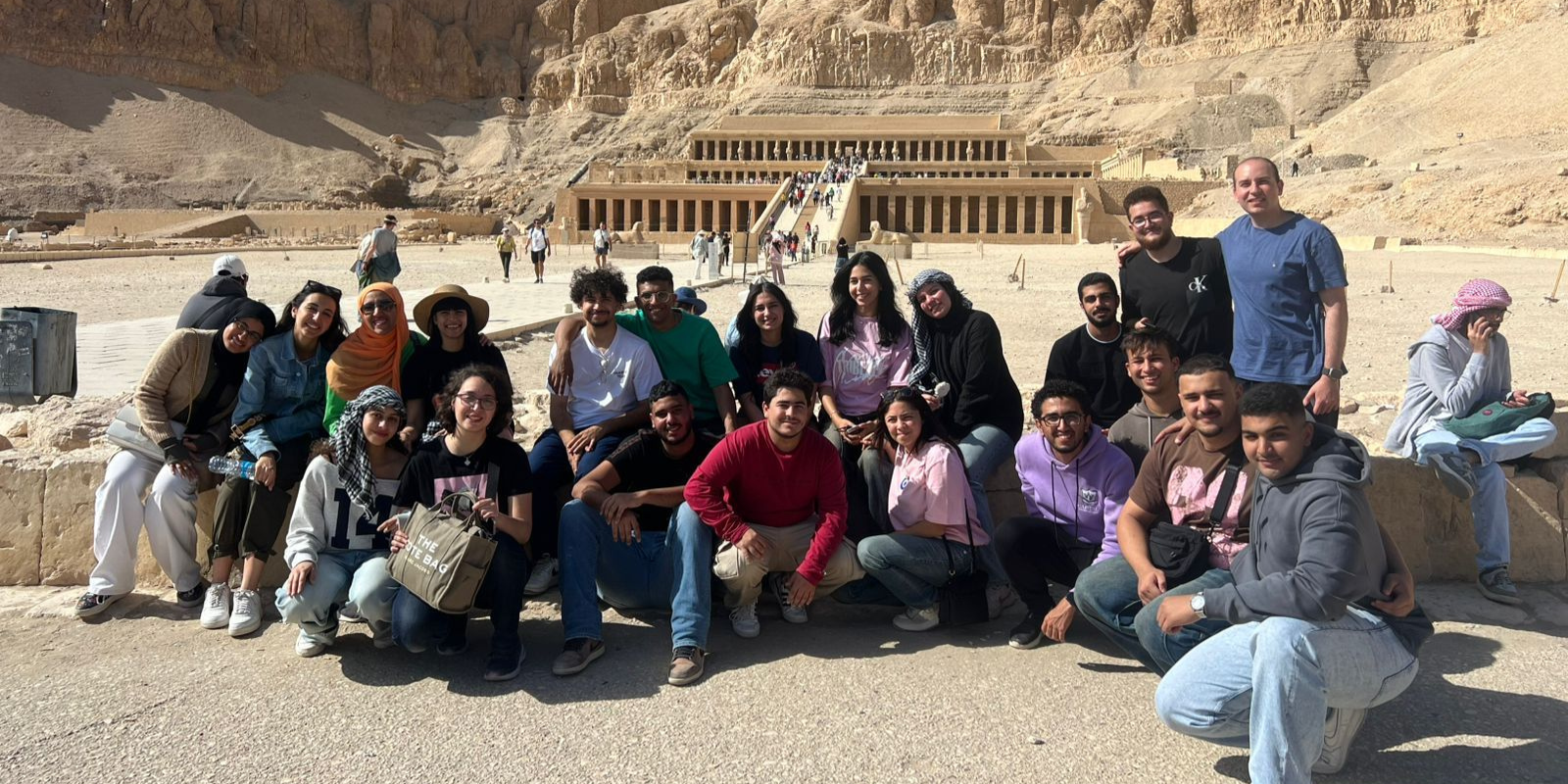
Winter Course Takes Students Around Egypt
At AUC, experiential learning can look a lot like tourism with an educational twist. Through a winter course called Egypt: Ancient to Modern Civilization, 46 students participated in immersive site visits all around the country.
Over the three-week course, the class engaged in the study of four major periods of Egyptian history: Pharaonic, Greco-Roman, Medieval Islamic and Modern. Along the way, students admired historic Egyptian art and architecture.
“I am amazed by how my students engage with Egyptian civilization — not just as history, but as a living narrative that shapes their identities and perspectives."
“It was an unforgettable journey through time," said student Mohamed Khalil. "The course was a wonderful opportunity to see, feel and understand Egypt’s past. Even as a non-Egyptian, I developed great pride in the grandeur of this civilization and its lasting influence."
The class took students to iconic sites around Egypt, including Saqqara, Giza, Old Cairo, Medieval Islamic Cairo, Luxor, Abdeen Palace and the New Administrative Capital. Michelle Henry, senior instructor II in the Department of Rhetoric and Composition, who teaches the course, said, “It was an amazing journey for the students. The course and students were extremely engaging.”
Integrated marketing communication sophomore Aisha Abd El Hafeez said, “Seeing the sites in person changed everything. It made me realize how deeply spiritual Egyptians have always been. From ancient temples to modern mosques and churches, Egypt’s soul has stayed the same: faithful, resilient and alive.”
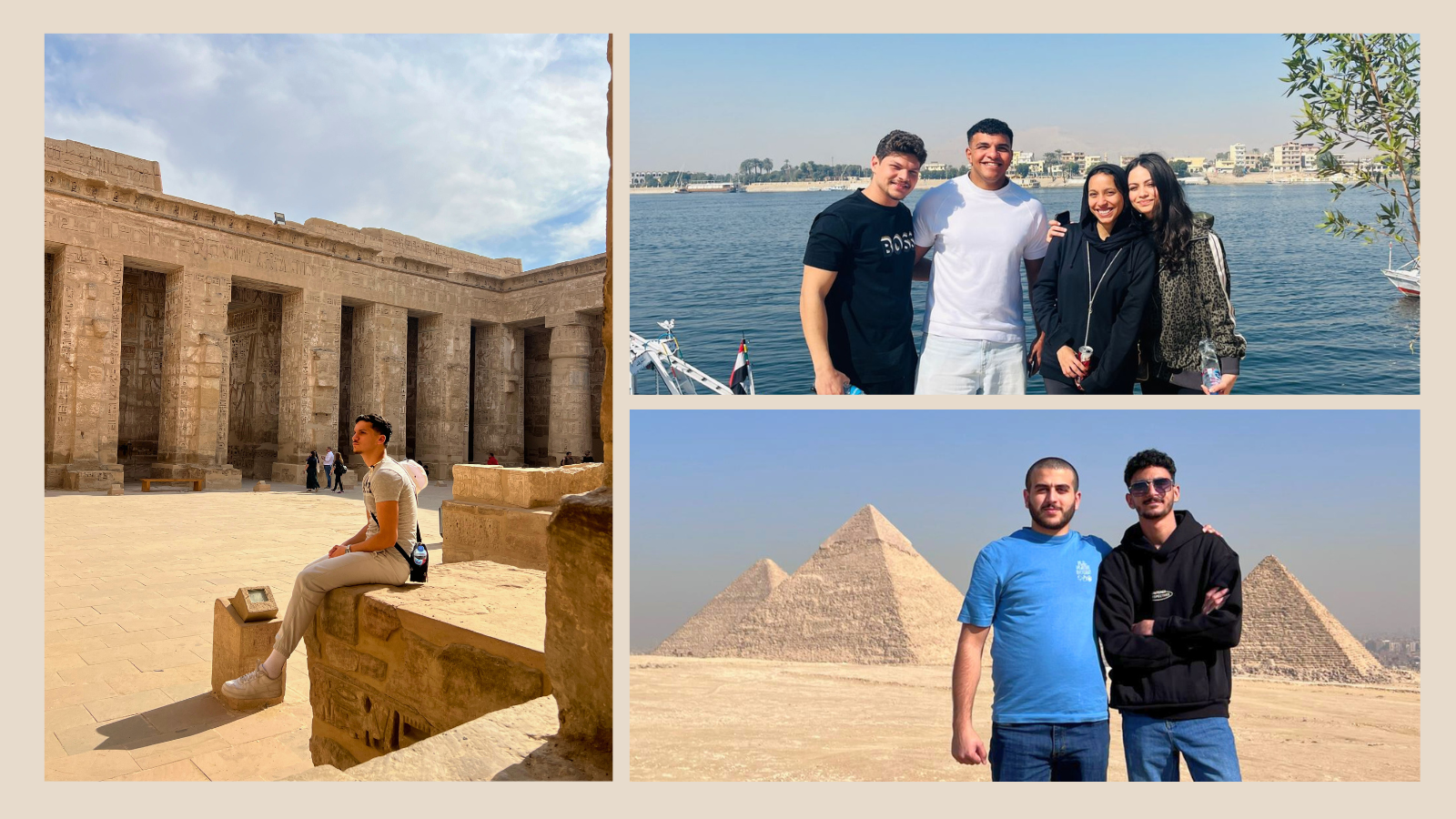
Students attended lectures and class discussions, wrote field notes and reflections, took pictures, presented orally and created multimodal projects over the three weeks. “I am amazed by how my students engage with Egyptian civilization — not just as history, but as a living narrative that shapes their identities and perspectives," said Yara Zidan, instructor in the Department of English Language Instruction (ELI). "Through critical thinking, alternative narratives and immersive digital projects, students continually push boundaries, often exceeding my expectations."
"I’ve always believed that learning extends beyond the walls of the classroom, so I was thrilled to see the students connect readings and lectures to actual sites and think critically about the stories being told. It brought Egypt’s history to life."
The course was coordinated by John Swanson, special adviser to the provost, and the three sections were taught by Henry, Zidan and Hana Abouzaied, also an ELI instructor.
“Although it was tiring at times, I was happy to see students experiencing history firsthand," Abouzaied said. "I’ve always believed that learning extends beyond the walls of the classroom, so I was thrilled to see the students connect readings and lectures to actual sites and think critically about the stories being told. It brought Egypt’s history to life."
She concluded, “What makes this journey truly special is that I learn as much from them as they do from the course. Their insights and creativity remind me that education is a two-way dialogue, and every class is an opportunity for discovery.”

